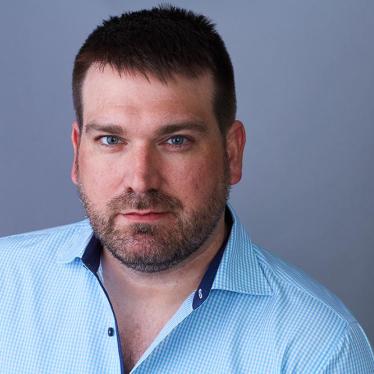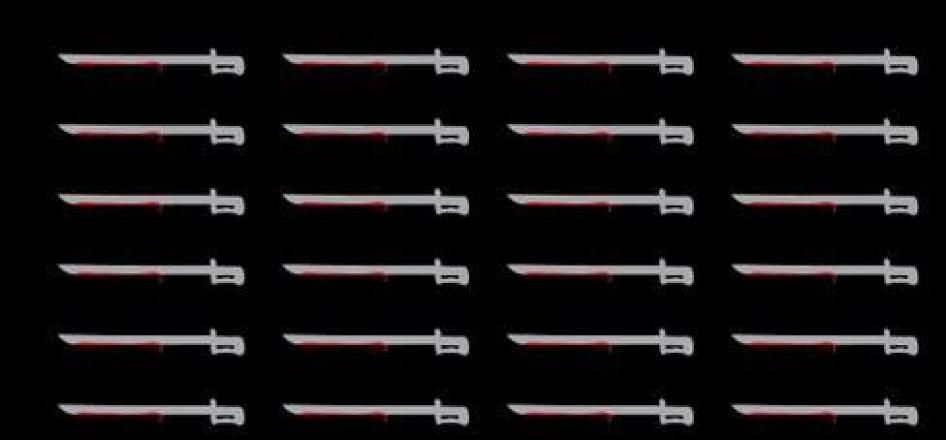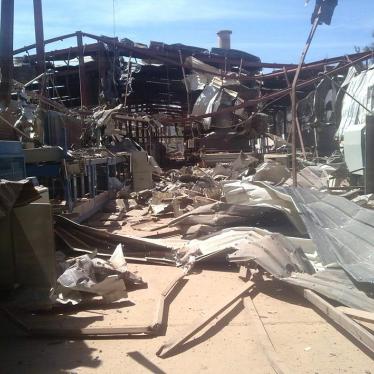And the capital trial of Murtaja Qureiris, an 18-year-old who was facing the death penalty for offenses he allegedly committed when he was just 10 or 11 years old, would have been another example of the Saudi's human rights abuses.
But on Saturday, in what could ostensibly be the result of international pressure, it was reported that Qureiris will not be executed and could be released by 2022.
Although this is promising news, the fact that the Saudi government even considered the execution of Qureiris is troubling.
Saudi Arabia is one of only a handful of countries that impose the death penalty against children, which flies in the face of its international obligations.
Its public prosecutor's office, which since 2017 has operated under the royal court where Mohammad bin Salman holds sway, sought the death penalty against Qureiris, a member of Saudi Arabia's Shia community. Prosecutors allege that Qureiris' crimes were committed in association with a protest movement in Saudi Arabia's Eastern Province by Shia citizens between 2010 and 2014. He is accused of attacking the police with Molotov cocktails, attacking a German diplomatic car, illegal possession of a firearm, and participation in protests and being a member of a "terrorist organization." Qureiris has denied these charges.
According to the European Saudi Organization for Human Rights, he was arrested in September 2014, when he was just 13, and has been in pretrial detention ever since.
No child offender should ever face the death penalty, much less someone like Qurairis who allegedly committed offenses at such a young age. Saudi Arabia should enact legal reforms to halt all executions of offenders without exception.
Perhaps in view of this criticism, in mid-2018 the authorities sought to bolster the country's reputation by adopting a "Juvenile's Act" that provides new protections for children involved in the criminal justice system. Saudi Arabia trumpeted this reform in its 2018 report to the UN Human Rights Council during its comprehensive review of the country's human rights record. But what Saudi Arabia failed to mention is that the new Juvenile's Act does not apply to certain offenses known as "hudud," or serious crimes defined under Saudi Arabia's interpretation of Islamic Law that carry specific penalties.
Because prosecutors charged Qureiris with one of these offenses, he had remained subject to the death penalty. The evidence cited in the charge sheet against Qureiris includes his confession, which he says authorities extracted through coersion, as well as confessions of four others charged for similar offenses in other cases.
Two of the other confessions cited as evidence are from Ali al-Nimr and Dawood al-Marhoun, both of whom were teenagers at the time of their alleged offenses and both of whom have been on death row awaiting execution since 2014.
Unfair trials of Shia citizens for protest-related offenses are all too common. Human Rights Watch obtained and analyzed ten separate trial judgments that the Specialized Criminal Court handed down in 2013 and 2016 against men and boys -- including al-Nimr and al-Marhoun -- accused of protest-related crimes. In nearly all these trial judgments, defendants had repudiated their confessions, saying they were coerced, including by beatings and prolonged solitary confinement.
When detainees repudiated their confessions in court saying they were extracted through torture, the court rejected their allegations out of hand in all cases. The court also refused requests to show video footage of interrogations and summon interrogators for questioning.
These blatantly unfair trials have resulted in the execution of dozens of Saudi Shia in recent years, including many of the 37 executed on April 23. One of the 37, Abdulkareem al-Hawaj, was a teenager at the time of his alleged offenses.
As for Qureiris, his case demonstrates that recent reforms have done little to protect children from major flaws in Saudi Arabia's criminal justice system that put detainees at risk of torture, unfair trials and the death penalty.
To respect children's fundamental rights, Saudi Arabia needs to apply legal safeguards mandating that they cannot face interrogation without a parent or legal guardian and lawyer present, and ensure that they can mount an appropriate defense before an independent and impartial judicial body. And Saudi Arabia should immediately ban all executions of children and child offenders.
Without such reforms, cases like Qureiris' will continue to stain Saudi Arabia's human rights record and keep it on the small list of countries that maintain this shameful practice.










